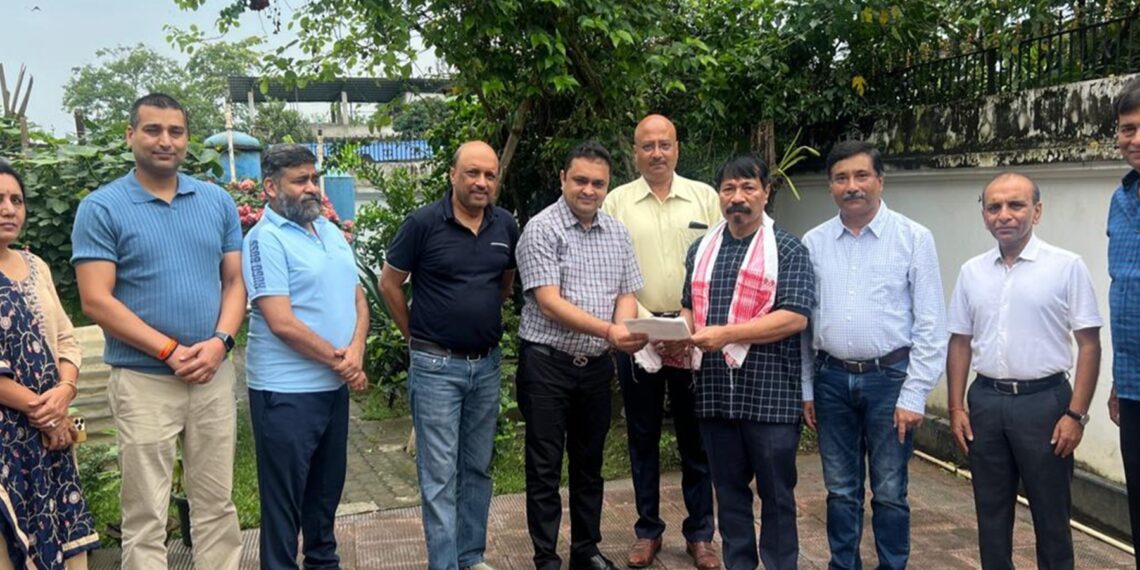GUWAHATI: The North Eastern Tea Association (NETA) has formally requested the Agriculture Department to ban the sale of six specific pesticides to small tea growers (STGs) in Assam.
A delegation of NETA, led by its chairman, Ajay Dhandharia, met Agriculture Minister Atul Bora on Sunday and submitted a memorandum on ways and means to resolve the crisis.
The NETA delegation comprised of adviser Bidyananda Barkakoty, vice chairman Neeraj Jallan and executive members, Manoj Jallan,Amit Malpani, Sudhir Roy,Vishal Jallan, Nitin Kashyap and secretary Manisha Sharma.
Earlier, in a letter addressed to Minister Bora, the association had highlighted the concerning issue, stating that STGs, who are responsible for producing 50% of the state’s green leaf output, have been found using pesticides not approved for tea cultivation.
The association pointed out that the issue stems from a lack of awareness among growers and the availability of these pesticides for other crops.
Informing Minister Bora of the crisis, the association added that recent tests have identified six pesticides—Cypermethrin, Acephate, Imidacloprid, Acetamiprid, Dinotefuran, and Fipronil—that sometimes exceed the Maximum Residue Limit (MRL) in tea.
“We envisage that 90°/c, of our FSSAI compliance issue in tea would get resolved if these six pesticides are prohibited from selling to tea growers, in the same line as recently adopted for Monocrotophos,” the letter read.
Earlier, the Food Safety and Standards Authority of India (FSSAI) had issued a directive on March 4, mandating testing for these pesticides.
Drawing inspiration from Punjab’s recent actions, where the Department of Agriculture and Farmers’ Welfare banned the sale, distribution, and use of ten specific pesticides to protect Basmati rice growers, the association urged Assam to adopt similar measures in terms of tea cultivation.
Punjab’s stringent enforcement includes written notes to dealers and regular checks at delivery points to monitor sales, the letter added.
“If it is not handled properly, then it may have a negative impact on tea consumption which will ultimately impact the livelihood of lakhs of people associated with the tea industry,” read the letter.
As Assam strives to uphold the quality and safety of its tea, coordinated efforts between growers, regulators, and the government are essential to overcoming these challenges, the association urged.
Assam’s tea sector remains crucial, with 90% of the state’s total exports comprising tea. The livelihoods of millions depend on this industry, making it imperative to address these pesticide compliance issues swiftly and effectively.















